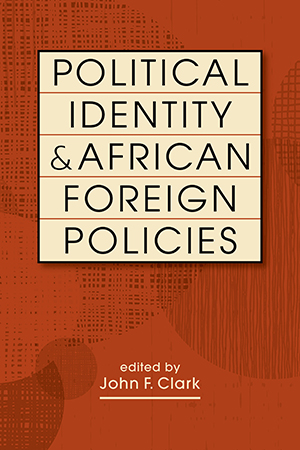BOOKS
Political Communication in Action: From Theory to PracticeDavid L. Helfert From developing effective messages to working with the news media, from writing speeches to tweeting, from crisis communication to the ethics of political communication, and everything in between, Political Communication in Action takes the reader step-by-step through the process. This approachable text: • Covers both theory and real-world practice • Uses examples and case studies More > |  |
Political Corruption in Eastern Europe: Politics After CommunismTatiana Kostadinova Why has political corruption emerged as a major obstacle to successful democratic consolidation in Eastern Europe? Exploring the origins, scope, and impact of political corruption in the region's post communist states, Tatiana Kostadinova identifies the factors that favor illicit behavior and considers how the various forms of malfeasance are threatening democracy. Rich cross-national data More > |  |
Political Corruption in Mexico: The Impact of DemocratizationStephen D. Morris Has the fundamental shift in Mexico's political system away from single-party authoritarian rule had any impact on the pattern of corruption that has plagued the country for years? Is there less or more corruption today? Have different types of corruption emerged? If so, why? Stephen Morris addresses these questions, comprehensively exploring how the changes of the past More > |  |
Political Culture and Democracy in Developing Countries, Textbook EditionLarry Diamond, editor In response to scores of requests, this textbook edition of Political Culture and Democracy in Developing Countries has been abridged to convey the core arguments of the book in a format appropriate for classroom use. The authors explore the complex and reciprocal interactions between a society's dominant beliefs, values, and attitudes about politics and the nature of its political system. More > |  |
Political Economy, Power, and Cultural Heritage in the Arab WorldHicham Alaoui and Robert Springborg, editors The authors of this groundbreaking, multidisciplinary collection are concerned with the growing politicization of cultural heritage in the Arab world. Adopting the unifying concept of political economy, they explore how regimes manipulate cultural heritage—and sometimes even deliberately erase it—to support their own legitimacy. More > |  |
Political Giving: Making Sense of Individual Campaign ContributionsBertram N. Johnson Why do some 30 million people in the United States give money to political candidates and causes—even though most individual contributions are irrational from the perspective of a strict cost-benefit analysis? How do campaign fundraisers tap into potential donors' motivations? Exploring three decades of historical data and also drawing extensively on the insights of contemporary campaign More > |  |
Political Identity and African Foreign PoliciesJohn F. Clark, editor Although all African states suffer the same peripheral status in world politics, they display variation in their foreign policies. How can we account for this variation? What role, if any, do the political identities of ruling elites play? Can patterns be seen in personalist vs. one-party dominant vs. multiparty regimes? The authors of Political Identity and African Foreign Policies address these More > |  |
Political Islam and Democracy in the Muslim WorldPaul Kubicek Belying assertions of the incompatibility of Islam and democracy, many Muslim-majority countries are now or have been democratic. Paul Kubicek draws on the experiences of those countries to explore the relationship between political manifestations of Islam and democratic politics. Kubicek's comparative analysis allows him to highlight the common features that create conditions amenable to More > |  |
Political Islam in Southeast AsiaGordon P. Means Gordon Means traces the evolution of Islamic politics in Southeast Asia, ranging from the early arrival of Islam in the region to the challenges it generates, and faces, today. Means’s analysis encompasses the events and actions shaping Islamic politics, as well as the impact of Islamic politics on government and public policy outcomes. It also offers insightful answers to such questions More > |  |
Political Islam in West Africa: State-Society Relations TransformedWilliam F.S. Miles, editor Long before the September 11 attacks galvanized Western attention on what has variously been called political Islam, Islamic fundamentalism, and Islamism, African nations with sizeable Muslim populations were experiencing significant transformations in the relationship between religion and state. Political Islam in West Africa explores those ongoing transformations in key countries of the Sahel More > |  |







